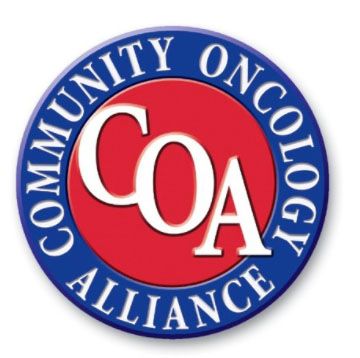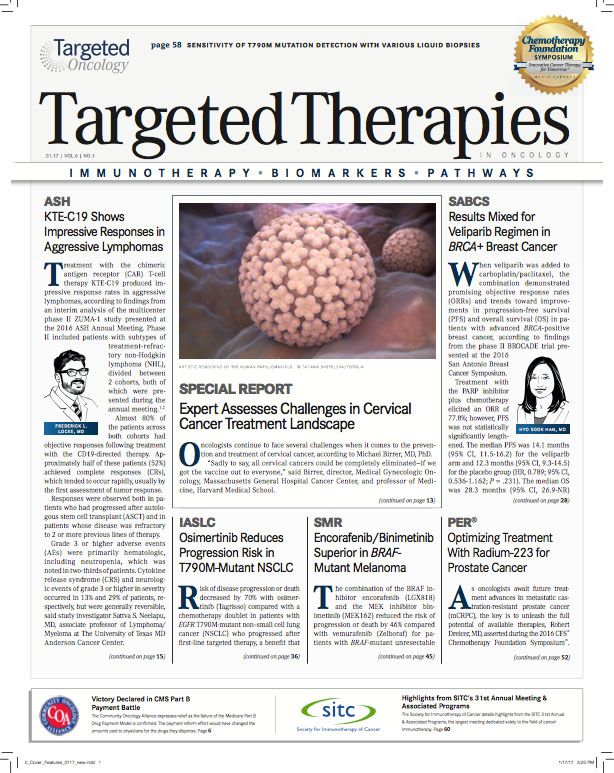Victory Declared in CMS Part B Payment Battle
Centers for Medicare and Medicaid Services and Rep Nancy Pelosi have confirmed the demise of the Medicare Part B Drug Payment Model experiment to cut margins.

Centers for Medicare and Medicaid Services (CMS) and Rep Nancy Pelosi (D, California) have confirmed the demise of the Medicare Part B Drug Payment Model experiment to cut margins paid to physicians on some of the most expensive drugs and introduce private-sector thinking into drug purchasing and pricing systems.
The proposed model had drawn strenuous broadsides from the medical community, including the Community Oncology Alliance (COA) and the American Society of Clinical Oncology (ASCO), which contended that the revision of the drug payment formula would have left physicians financially underwater on many drugs.
“While the proposed Medicare Part B demonstration had admirable goals, our members raised a number of concerns, and we are pleased the Center for Medicare and Medicaid Innovation [CMMI] has decided not to move forward,” Pelosi said in a statement.
In late November, CMS missed an important deadline for putting the Part B model into effect. As a result, President Barack Obama did not have enough time to enact the measure. Some health policy makers speculated that with the incoming Republican administration, the payment model would not have survived anyway.
“Cancer patients and their providers across the country can breathe a sigh of relief now that the Part B experiment on cancer care is finally dead. It was encouraging to have such strong support from Congress to end this proposed model that was, at best, an overreach by CMS, created with no stakeholder input,” COA said in a statement when the Part B model was confirmed to have failed.
The Part B model originated from the CMMI, an arm of CMS commissioned to design and test reform measures that would bring the government payer closer to its goals of cutting waste and inefficiency and improving patient outcomes. Dissatisfaction with the drug payment model proposal led some on Capitol Hill to call for the abolition of the CMMI.
The CMMI was also the originator of the Oncology Care Model (OCM), an experiment that was launched this year to test new payment methodology, physician performance measurement, and patient care coordination. The OCM has faced criticism, too, although some physician groups involved with it have acknowledged value in the program as they have overcome some of the hurdles of adoption.
A main point of contention of the Part B payment model was the proposal by CMS to lower the average sales price (ASP) plus 6% formula for drug payments to ASP plus 2.5%. The formula applies to drugs that are dispensed through a physician’s office or a hospital outpatient department.
COA and ASCO had responded that there are already discounts applied to the 6% formula, as well as other factors that compromise payment margins, and that the true adjusted margin allowed for drug dispensing practices is far lower. The 2.5% rate plus the proposed at fee per drug, they said, would put them “underwater” for a lot of drugs they currently dispense.
For its part, CMS described the model as a drug payment experiment, which drew deep cynicism from the physician community. Ted Okon, the executive director of COA, who was a leader in the lobbying effort to defeat the measure, contended that the enormous scale of the experimentslated to involve all physicians whose patients received Part B drugs—and the lack of initial communication with the medical community about the design of the program seemed like a Democratic plot to cut drug payments under the guise of a balanced, scientific payment model.
“The Part B model was air-dropped in with literally no stakeholder input. The administration tried to abuse the powers of the CMMI to push through a separate agenda. I think everybody saw through that,” Okon said. He added that the Part B battle may have even jeopardized the future of the CMMI.
In her remarks, Pelosi appears to have anticipated the lasting tarnish that CMMI has suffered as a result of the failed payment model. “The Innovation Center is a valuable tool in our continued pursuit of ways to strengthen the healthcare available to the American people,” she said.
In addition, she stated that the effort to control soaring costs of care must continue. “Prescription drug costs represent the largest factor driving rising healthcare costs in America today. Congress must come together in a bipartisan way to address the soaring costs of prescription drugs in a way that supports the search for cures while ensuring that patients can afford these treatments.”
In its statement, COA said that although its membership is relieved about the official termination of the Part B Drug Payment Model, it is committed to the effort to improve the value equation in medicine.
“COA is deeply committed to increasing the quality of cancer care and decreasing costs,for both drugs as well as hospital-related costs, the biggest driver of cancer treatment spending. We are working overtime to make the CMS Innovation Center's Oncology Care Model successful by networking participating providers and payers to share information and resources, as well as by hosting summits, conferences, and meetings to discuss and exchange ideas on oncology payment reform,” according to the statement.

Gasparetto Explains Rationale for Quadruplet Front Line in Transplant-Ineligible Myeloma
February 22nd 2025In a Community Case Forum in partnership with the North Carolina Oncology Association, Cristina Gasparetto, MD, discussed the CEPHEUS, IMROZ, and BENEFIT trials of treatment for transplant-ineligible newly diagnosed multiple myeloma.
Read More